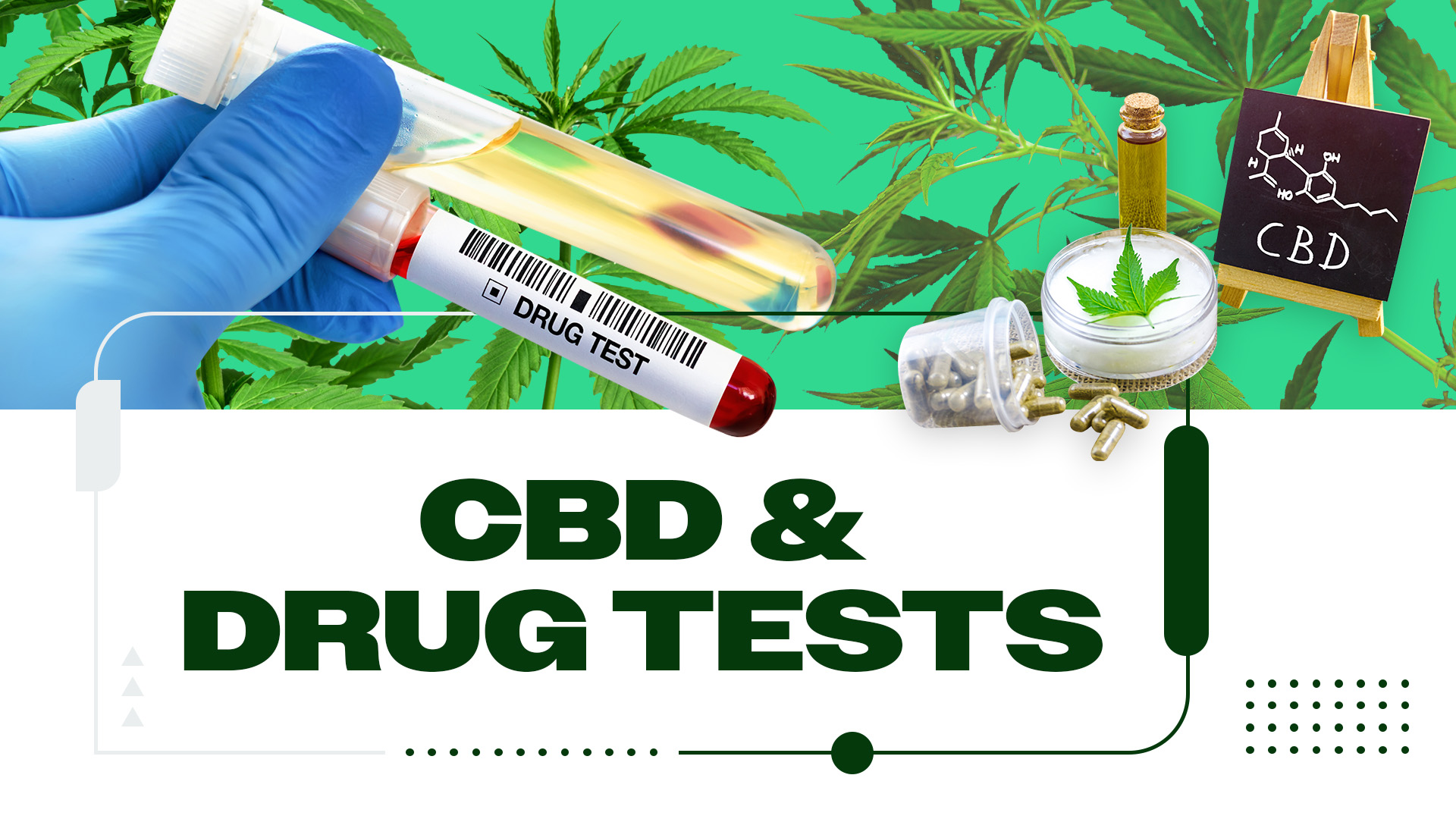Despite the popularity of cannabis, drug tests remain a huge concern for users who don’t want to lose their jobs, scholarships, and more.
THC (tetrahydrocannabinol) and CBD (cannabidiol) are both compounds found in cannabis, called cannabinoids. THC is responsible for the psychoactive effects of weed, while CBD is a non-psychoactive, relaxing counterpart.
Drug tests don’t look for CBD–only THC. But we’ve all heard horror stories about someone who was using CBD and failed a drug test. How could that happen? Let’s find out together!
Does CBD Show Up on Drug Tests?
CBD itself does not show up on drug tests. However, full-spectrum CBD products can contain up to 0.3% THC, and it’s possible for the THC to be detected. Although this is unlikely considering its small percentage, don’t completely rule it out.
This study found that urinary CBD samples were more easily detectable, and higher in concentration, after oral consumption of CBD vs. vaporized consumption.
It also found that 3 out of 18 participants tested positive for THC in their urine samples. Researchers concluded that CBD isolates shouldn’t show up on drug tests, but full-spectrum hemp products have the potential to trigger a false positive.
CBD is still unregulated, so it’s important to look for third-party testing on your CBD product’s website. This testing will look for impurities in the product, such as residue from the extraction process, heavy metals, and pesticides.
Science is still lacking long-term research on the effects of CBD on the body, so do diligent research and make an informed decision on whether or not you want to consume CBD products.
How Do Cannabis Drug Tests Work?
The most common cannabis drug tests are:
How do cannabis blood tests work? The window of detection in blood tests depends on how much THC is in your system due to how heavy of a user you are. While THC can be detected in a heavy smoker for up to a week after last use, the amount of THC in cannabis is sometimes 100 times greater than in hemp products.
Hair testing has a much longer detection window and uses the first 1 ½ inches of hair. THC can be detected for up to 90 days in a hair test.
Meanwhile, urine testing can detect THC for up to 30 days after last use if you’re a heavy cannabis user. Again, it is unclear how this will translate for the trace amounts of THC found in full-spectrum CBD products.
Why You Should Get Your Medical Marijuana Card
Veriheal has satisfied millions of patients nationwide by giving them access to these benefits
- Larger purchase limits
- Peace of mind
- Enhanced legal protection
- Access to higher potency strains
- Save up to 25% on cannabis purchases
- Skip the line at the dispensary
So, to answer the question ‘How long does CBD stay in your system?” it depends on your consumption levels and the test being done.
While some tests are quick, institutions favor slower and more accurate tests.
Regarding drug tests at work, the ACLU has made its stance clear:
“Drug testing is designed to detect and punish conduct that is usually engaged in off-duty and off the employer’s premises – that is, in private. Employers who conduct random drug tests on workers who are not suspected of using drugs are policing private behavior that has no impact on job performance.”
However, until drug tests are done away with, it’s important to know how the products you consume may affect your results.
Can You Ensure a CBD Product Doesn’t Contain THC?
The only way to ensure that a CBD product doesn’t contain THC is to buy either broad-spectrum CBD or CBD isolate, and then check their test results for THC content.
A study published in the Journal of the American Medical Association found THC in 18 out of 84 online CBD products sampled. It’s vital to buy from reputable brands and to only buy broad spectrum or CBD isolate if you want to avoid trace levels of THC in your product.
Frequently Asked Questions
Will CBD cause me to fail a drug test?
CBD isolate and broad-spectrum CBD will not cause you to fail a drug test because they don’t contain any THC, so long as the brands are reputable. Full-spectrum CBD may cause you to fail a drug test due to trace amounts of THC.
How long does CBD stay in your system? / How long does CBD stay in urine?
CBD can stay in your system anywhere from a few hours to a month. CBD stays in urine for up to five days.
Is CBD legal federally?
CBD is federally legal thanks to the 2018 Farm Bill. The 2018 Farm Bill federally legalized all hemp products, with hemp being defined as containing 0.3% THC or less.
Can topical CBD cause a failed drug test?
Although unlikely, topical CBD products–if full spectrum–can theoretically cause a failed drug test.
Will hemp lotion show on a drug test?
Full spectrum help lotion can theoretically cause a failed drug test. Full-spectrum CBD products contain up to 0.3% THC, and THC can be absorbed topically.
Author, Share & Comments
















